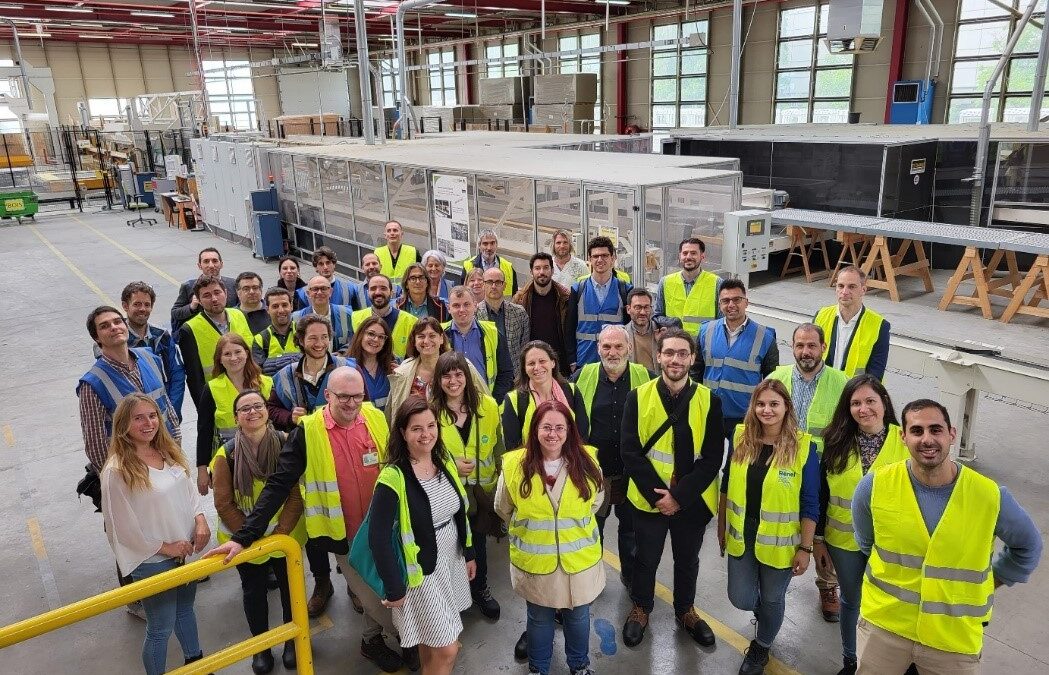The REHOUSE project, led by CARTIF, held its second General Assembly on 10 and 11 May at the headquarters of the Institut National de l’Énergie Solaire (INES) in Le Bourget-du-Lac (France), organised by the French Alternative Energies and Atomic Energy Commission (CEA). The consortium, composed of the 25 partners from eight countries, gathered in the same space to share the latest project profess updates and upcoming plans. In addition, the event included workshops and a tour of Thechniwood’s prefabricated panel facility, where PanoBloc, the product used in the PanoRen renovation package, is manufactured.
The main objective of the meeting was to discuss the profess made during the first months of the project and to review the planning for the next period. During the meeting, the first two workshops of the project were held. The first one, run by Steinbeis Europa Zentrum, aimed to stimulate discussion on the possible exploitable results of the project. On the other hand, Nobatek led the second workshop, which focused mainly on the monitoring plans to be developed and deployed within the project. Specific sessions were also held to share with the whole consortium the progress made on the renovation packages and demonstrators.
The aim of REHOUSE, the project co-funded by the European Commission’s Horizon Europe Research and Innovation Programme, is to extend the scope and productivity of the building renovation process, improve the comfort and satisfaction of occupants and users, and make more frequent use of integrated solutions for decentralised renewable energy generation. The consortium is finalising evaluation plans for the demonstration sites and analysing the social circumstances of future events. These impact assessments will help ensure that social innovation initiatives specific to the local environment are used to implement REHOUSE.
The project’s rehabilitation solutions will be used in four demonstration sites in Greece, Italy, France and Hungary. Over the course of the last four years, the initiative will provide 8 state-of-the-art integrated solutions for effective, affordable and sustainable retrofitting procedures. This will involve comprehensive designs, pilot set-ups and solution validation demonstrations. If the refurbishment strategies prove to be effective, they will be made available to the market, implemented on a large scale and contribute to accelerating the current pace of European refurbishment.
CARTIF, in addition to being the project coordinator, is in charge of defining the taxonomy of the refurbishment packages and generating a digital repository of products, developing plans for replication of the refurbishment packages beyond the project, supporting the definition of the evaluation and monitoring methodology of the different actions of the project, as well as supporting the definition and deployment of the BIM-IPD methodology.
